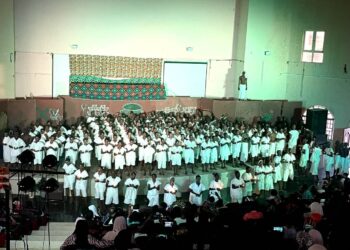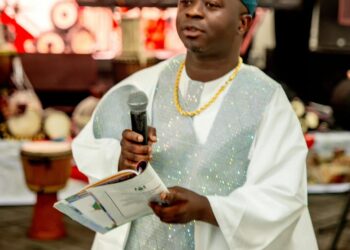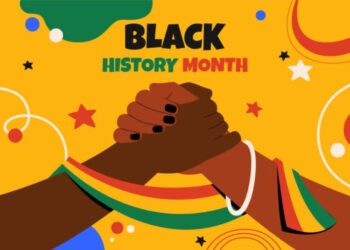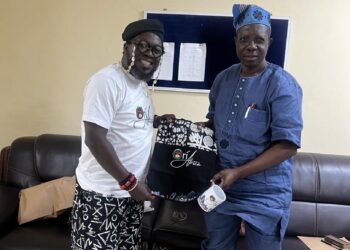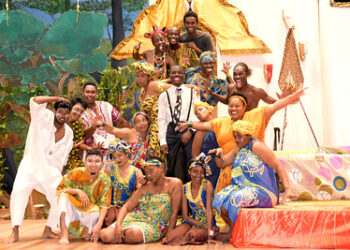Photo: Oyetunji Sukura Bolanle
By: Tunji Solomon & Mofe Okerentie

IT IS a familiar terrain for the privileged class to blame the downtrodden for the state of corruption the nation has been soaked-in time and time again – as sorts of cobwebs that entangled the nation on a spot. The sad part: the consequences does not fall on the opportunists, but the common man – the one Frantz Fanon’s boldly tagged: Wretched of the Earth.
IN HIS innocuous stance lies his ingenuity, Ben Tomoloju knows how to pinch us with our pains, yet, looks away as if he has not hurt us through his creative work. He only wakes our consciousness to our needs, and our silence on what matters. He definitely understands the construct of Sociology of Mass Communication – he knows how to report the society back to the society!
IT IS more than a paradox as political office holders, being the metaphoric foreman and guardian of national resources, who plunder the wealth they’re elected to safeguard. Unlike Niyi Osundare’s evergreen poem: Ours to Plough, Not to Plunder; they are duty bond to protect personal interests, while national interests languish.
JANKARIWO, directed by Ojeleke Samuel Oluwatimilehin, through the playwright, weighs the complexities of power and leadership, he chips in the tendencies and acts of office holders, who take advantage of the ordinary citizens in their vulnerability. Other themes treated by the playwright is the community struggle, identity and every day survival race. It refreshes the need to have visionary leaders who are agents of change so desired by the society.
THE CHARACTERS were adequately internalised from the Councillor (Onipede John) – a symbolic representation of the political class who nurtures creative ambition to destructive political career through greed and self-centred lifestyle; we have them in abundance across the length and size of Nigeria. They are mirrored as enemies of the state at the grassroots level. The trio of the Teacher (Ogunshola Olushola) to Pastor (Orobiyi Oyindolapo) – like the clergy in The Pillars of the Earth – an adaptation of Ken Follette’s novel; to Imam (Ramoon Mujeeb); the allegory is complete with the Bank Manager (Ogunwemimo Islamiyat), Leader of Trader (Bakare Roimot) and workers (Olayiwole Ajibola) are all parts of the systemic failure the nation manifests. We all know what is wrong with us as a nation.
THE WIFE of the Councillor (Treasure Thompson) reminds us with clarity the representation of the contemporary wives of elected political office holders, who waste tax payers’ money on needless travellings, and equally fails in their matrimonial duties to the extent that their duties become the duties of the house help. There are examples in your neighborhood. The theme here talks to every housewife indirectly. You cannot eat your cake and have it at the same time. Learn.
LIKE HALLOWEEN that never lasts, the spoils of office spoil the lives of the Councillor, his allies in corruption and extensions, with the sudden take-over of the government through the coming of the Junta – the Jack Boot, the end of the road comes in the midst of merrymaking for the opportunist civilians; who the military derogatorily refers to as Bloody Civilians. A reminder of what had happened in national history, when many politicians ran away after the overthrown of the democratic government. As Jurgen Habermas once said: the past is never past!
AS ITS social outcome, Jankariwo remains one of the most significant works of art within the space traditional protest theatre of Nigerian context, occupies. Its enduring impact lives in its confrontational critique of malfunctioning leadership. Significantly, it could be said that the change experienced in Ben Tomoloju’s Jankariwo was engineered by the bloody civilians themselves as the impression was so bold and loud through the directorial concepts. The reviewers have other ideas: the Nigerian public of 2025 is yet to know their rights towards liberation from the shackles of the political class. They’re still like the spectators watching their own affairs with indifference and cold attitude. What a pity!
WITHOUT MINCING words, the drama talked to the audience in many ways. It is like mud that’s being stirred. Individual should pick their lines and play their roles in the expected and ideal society they want to see materialised.
MANY THANKS to the effective and efficient ways the scenes were bridged through sonorous songs and tribal accent of the Yorubas that created hilarious and humourous atmosphere. The colourful costumes that depicted the old school, time and age; brings home the scope of the plot and settings, while the themes travel ahead of time. The few weak links in the stage performance manifested in form of occasional masking and inability to optimally maximise the stage. The Orchestra (Giwa Balikis/Adekanbi Sofiat), Props (Onisona Oluwaseun) and Assistant Director (Adebowale Farida Folasade); being 100 Level performance, deserve commendations.
THE CAST appreciated the significant impacts of the Dean of the Faculty, Prof. Temisan Ebijuwa, and Head of Department, Theatre Arts, Prof. Taiwo Oloruntoba-Oju. The audience was kissed with a bow by the cast as gesture of their appreciation too.
You can get every of our news as soon as they drop on WhatsApp ...To get all news updates, Join our WhatsApp Group (Click Here)



